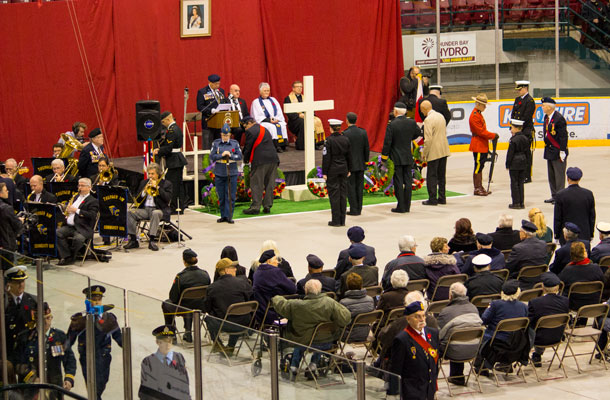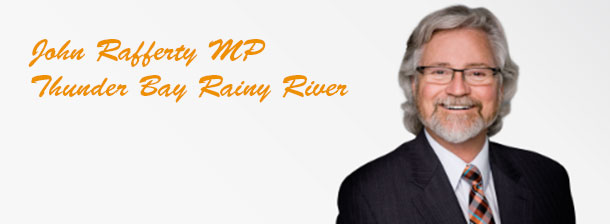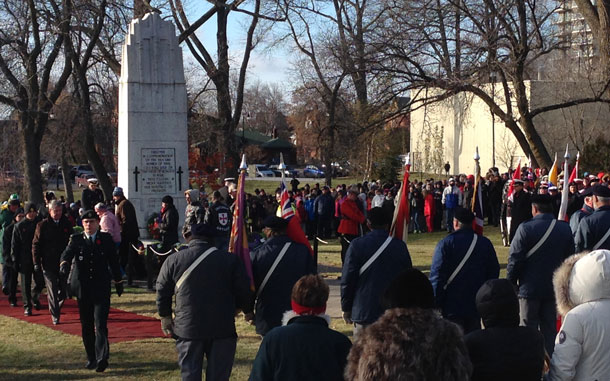
Veteran’s Woes Cloud Remembrance Day
OTTAWA – Federal Politics – When the New Veterans Charter was launched nearly eight years ago, we were hopeful it would be a step in the right direction for our nation’s veterans. Upon its launch, Stephen Harper guaranteed that “in the future, when our servicemen and women are to leave our military family, they can rest assured the Government will help them and their families’ transition to civilian life.” Years have passed, yet it appears this revolutionary document has fallen short in providing our veterans with the treatment they deserve. With the actions of late from the current government, there remains little assuredness for former servicemen and women that a helping hand is always within arm’s reach.
In order to quell growing concerns over the treatment of veterans, the Harper government used last month’s throne speech to address the priorities of veterans. Increasing support through their enhanced Veterans Charter was promised, even though Veterans Ombudsman Guy Parent found shortcomings in many of the Charter’s programs. Parent underscored issues such as inadequate Earnings Loss Benefit support to those transitioning from the military to a civilian career, insufficient financial support provided to incapacitated Veterans above the age of 65, and inefficient vocational rehabilitation and assistance programs.
Also highlighted in the throne speech was a pledge to reduce red tape so that veterans can access the benefits they need. Yet, Parent claimed that 53% of Veterans deemed incapacitated and unable to take part in suitable gainful employment were denied Permanent Impairment Allowance under the New Veterans Charter. If convenience and accessibility for veterans is a priority, then it begs the question as to why nine Veterans Affairs offices are being shut down across the country. With the elimination of the Thunder Bay office the next accessible location for our veterans will be eight hours away. To ask elderly, disabled, or injured veterans to travel such distances is appalling. Furthermore, with less administrative assistance, completing long and complex application forms for government programs will become increasingly challenging.
The neglect faced by our service members is all the more alarming when we consider the developments of late. News of the Canadian Forces medically discharging troops when they are just months shy of their pensions came to light when both Corporal David Hawkins, a combat engineer, and Corporal Glen Kirkland voiced their displeasures of being forced out of the service. Unfortunately, these are not rare cases. In 2012, 199 of those medically discharged hadn’t reached the 10 year pension threshold. While universality of service – which sets a minimum physical standard for service members – is a reasonable requirement, it’s a cruel act to pull the rug from under injured members who have given their years of service and who were moments away from securing their pensions.
Compounding issues faced by our veterans has made this past Veterans’ Week and Remembrance Day one of mixed emotions. We congregate to pay tribute and show our respects to Canada’s veterans, as well as today’s men and women in uniform. On the one hand this nationwide support brings with it a warm atmosphere and a sense of unity. But this is dampened by the harsh reality that our veterans are being mistreated, and not receiving the care they were promised upon enlisting. The Harper government, through its throne speech, has once again promised veterans that they “will stand by them.” Since the New Veterans Charter, however, many former service members facing hardships have only experienced a government standing idle.
John Rafferty MP
Thunder Bay Rainy River















